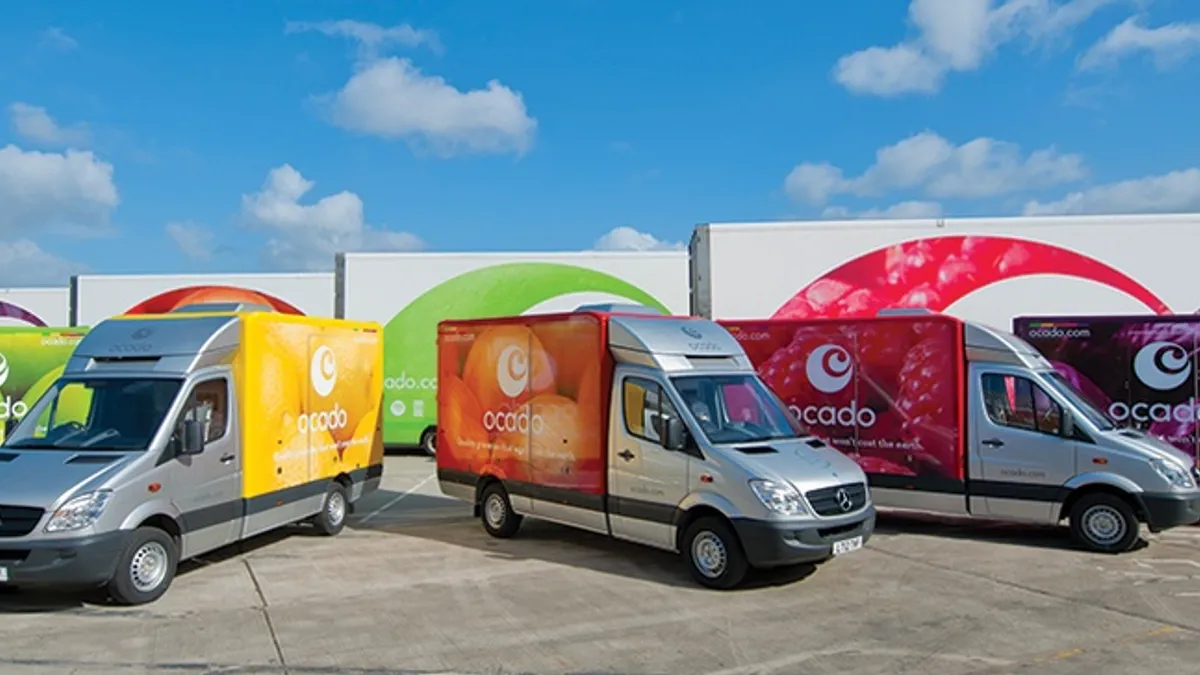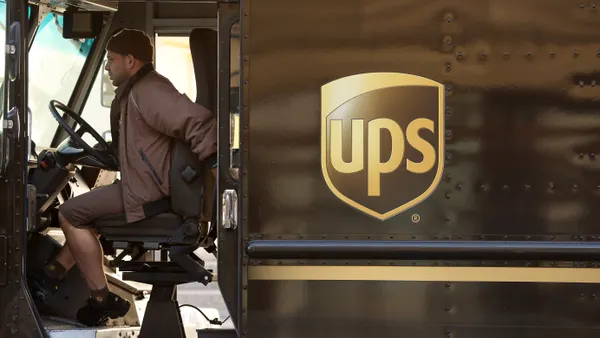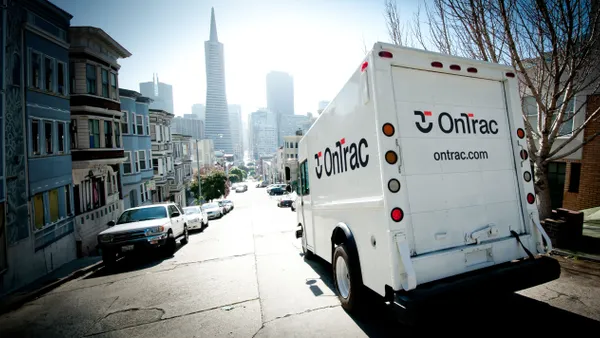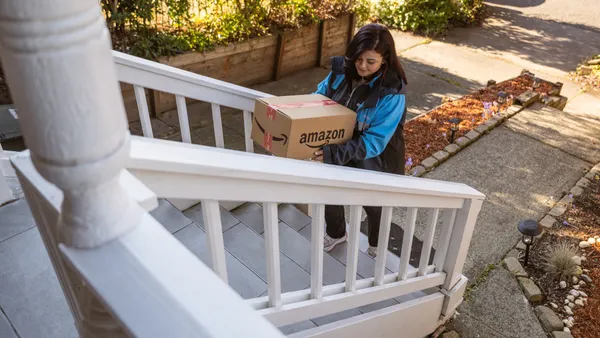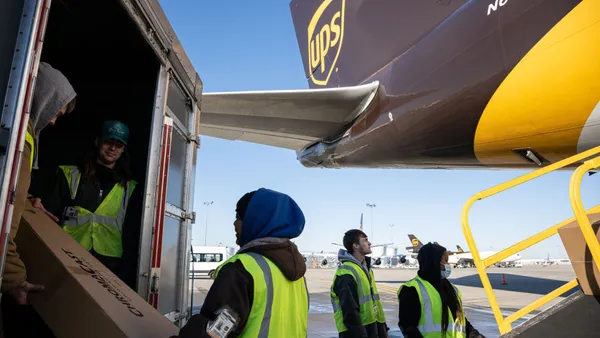Dive Brief:
- Ocado has invested 10 million British pounds ($13.6 million) in self-driving technology startup Wayve to spur the development of autonomous grocery delivery for "complex urban environments," according to a press release Wednesday.
- As part of the collaboration between the two firms, Ocado will outfit some of its vans with Wayve's autonomous driving technology as the vehicles navigate urban delivery routes.
- This is Ocado's second investment in a self-driving tech firm this year as it aims to eventually automate delivery for the international retailers that use its technology, like Kroger.
Dive Insight:
Ocado has automated a significant portion of the storage, picking and packing processes in online grocery. Now it's determined to do the same for delivery and logistics.
"Logistics costs constitute the single-largest line item in the operating cost structure of online grocery," the company noted earlier this year when it announced an investment of about $13.6 million in Oxbotica, which develops autonomous driving software.
Ocado's twin investments aim to advance the cost-saving technology while also giving it a stake in two promising firms. Founded in 2017, Wayve's autonomous-driving technology relies on deep learning and cameras, in contrast to the light detection and ranging — commonly known as "lidar" — systems and sensors that many self-driving companies currently employ. The camera-based approach is less costly, and according to Wayve it is also well suited to navigating traffic-clogged, complex city streets where so many grocery deliveries happen.
Ocado will outfit some of its vans in London for autonomous tests that will be overseen by human drivers, Reuters reported. In addition, a portion of Ocado's fleet will also get outfitted with devices that collect data for Wayve.
Wayve, which has so far raised more than $58 million, also plans to run an autonomous delivery pilot with U.K. grocer Asda beginning next year.
Ocado's investment in Oxbotica, meanwhile, builds on a relationship that began in 2017 when the two firms tested delivery in London with an early prototype vehicle. The companies are now working on capturing data from Ocado's delivery vans and warehouse vehicles, which Oxbotica will then use to develop its technology.
The arrangement includes a multi-year collaboration that aims to probe autonomous-vehicle technology across middle-mile and last-mile usage, according to the announcement.
"The use-cases range from vehicles that operate inside of our Customer Fulfilment Centres (CFCs) and the yard areas that surround them, all the way to last-mile deliveries and kerb-to-kitchen robots," the announcement stated, noting that the companies expect to have a prototype vehicle ready within two years.
Self-driving delivery vehicles have grabbed headlines in recent years, and firms like Starship and Waymo are linking up with grocers on pilot programs. But the less-glamorous middle-mile vehicles that shuttle goods between facilities on planned, predictable routes are speeding faster toward full adoption by major companies like Walmart. Ocado also notes the opportunity for autonomous technology that takes grocery or restaurant delivery orders from curbside to a customer's doorstep or refrigerator.



